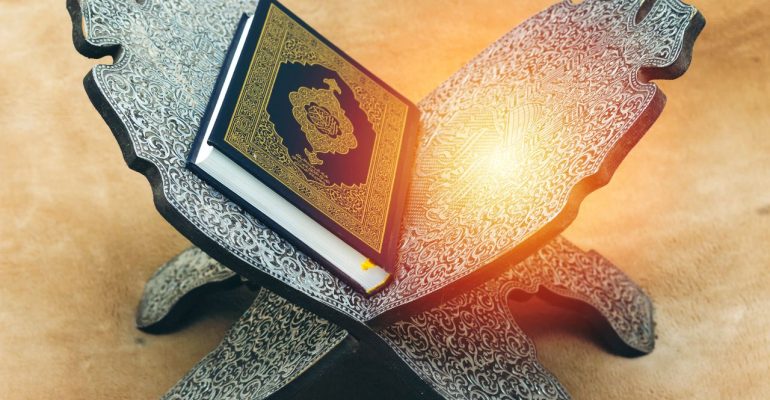The Quran: Guiding Humanity to the Right Path
February 7, 2024 2025-08-13 11:17The Quran: Guiding Humanity to the Right Path
The Quran: Guiding Humanity to the Right Path
In a world filled with uncertainties and challenges, many seek guidance and direction to lead a fulfilling and righteous life. For Muslims, the Quran serves as the ultimate source of guidance, illuminating the path to righteousness and spiritual fulfillment. In this comprehensive exploration, we delve deeper into the profound wisdom within the Quran that serves as a beacon of light for humanity.
What is the Right Path in the Quran?
The Quran articulates the concept of the “right path” as the path of righteousness and obedience to the will of Allah. It emphasizes the importance of adhering to the principles of justice, compassion, and humility, which lead individuals towards spiritual enlightenment and inner peace. Surah Al-Fatiha, the opening chapter of the Quran, begins with the invocation, “Guide us to the straight path” (Quran 1:6), highlighting the significance of seeking divine guidance in navigating life’s journey.
Quranic Perspective on Human Rights
One of the fundamental principles highlighted in the Quran is the importance of human rights. It advocates for equality, justice, and compassion towards all members of society, irrespective of their faith, ethnicity, or social status. The Quran teaches that every individual possesses inherent dignity and deserves to be treated with kindness and respect. Surah Al-Hujurat (49:13) emphasizes the unity of humanity, stating, “O mankind, indeed We have created you from male and female and made you peoples and tribes that you may know one another. Indeed, the most noble of you in the sight of Allah is the most righteous of you. Indeed, Allah is Knowing and Acquainted.”
The Quranic Perspective on Being Human
The Quran offers profound insights into the nature of humanity and the purpose of existence. It teaches that humans are created with a noble purpose – to worship Allah and to act as stewards of the earth. Moreover, it emphasizes the importance of self-reflection, humility, and moral integrity in shaping one’s character. Surah Al-Baqarah (2:286) encapsulates this sentiment, stating, “Allah does not burden a soul beyond that it can bear…” Humans are seen as trustees of the earth, tasked with caring for it and its inhabitants with justice and compassion.
Guided to the Straight Path
Among the most renowned verses in the Quran is the plea for guidance to the straight path. Surah Al-Fatiha (1:6) encapsulates this plea, serving as a constant reminder for believers to seek divine guidance in their lives. This verse underscores the significance of staying steadfast on the path of righteousness and seeking Allah’s guidance in every aspect of life.
FAQs
Q: Is the Quran relevant to contemporary society?
A: Yes, the Quran offers timeless guidance that remains relevant to all aspects of human life, including contemporary challenges and issues.
Q: How can one seek guidance from the Quran?
A: Seeking guidance from the Quran involves studying its teachings, reflecting on its verses, and implementing its principles in daily life. Additionally, seeking advice from knowledgeable scholars can aid in understanding the Quran’s message.
Q: Does the Quran address the rights of non-Muslims?
A: Yes, the Quran emphasizes the importance of treating all individuals with kindness, respect, and justice, regardless of their faith or background.
Q: What role does the Quran play in shaping Muslim identity?
A: The Quran serves as a central pillar of Muslim identity, guiding believers in their spiritual, moral, and ethical journey.
In conclusion, the Quran serves as a timeless guide for humanity, offering profound insights into the nature of existence, the principles of morality, and the path to spiritual enlightenment. Through its verses, Muslims are reminded of their duty to uphold justice, compassion, and righteousness in all aspects of life, thereby leading humanity towards a brighter and more harmonious future.
For further insights on embracing Islamic values and treating non-Muslims with kindness and respect, explore the article on “Embracing Islamic Values: Treating Non-Muslims with Kindness and Respect.”
Embracing Islamic Values: Treating Non-Muslims with Kindness and Respect








